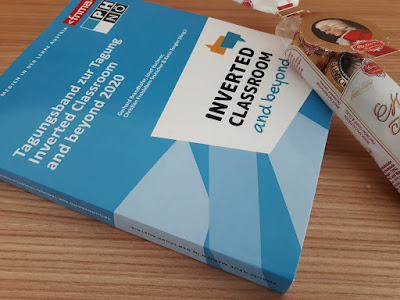Flipped Learning
Currently, two pedagogical approaches, the flipped classroom (FC) and flipped learning (FL), seem to be attracting many teachers who are trying to change the traditional learning culture to a more learner-centered and active way of studying the subject. The FC is a pedagogical approach which is often associated with watching videos at home before lessons and doing “homework” in class.
For me, the model of flipped classroom (FC) is a teaching approach and flipped learning (FL) is a learning culture. FC can represent a theory of change for teachers who strive to change their classroom practice. In this capacity, the FC model challenges and supports the teachers to transform their teaching approaches to build new kind of learning culture. FL denotes a broader aim: professional development in which teachers consciously place themselves in a position that requires them to completely rebuild the role of the teacher.
As a doctoral researcher I am interested in teacher’s agency and identity in educational change in settings where teachers are excited to create new pedagogical practices and roles to break away from the traditional taken-for-granted ways of organizing mathematics teaching. I argue that educational change can arguably only be realized when teachers are involved as contributors to the process. A successful educational change asks for teacher agency, which refers to their capability to critically evaluate and reconstruct the conditions of their work and professional identities.
Here are some open-access articles where you can read more how I have tried to justify FL theoretically:
In co-authored book “Flipped learning in Finland” I welcome you to a pedagogical discussion in which theory and practice will engage in dialogue and challenge each other to open the doors to greater understanding. You can buy the book for example on Amazon.com.
For me, the model of flipped classroom (FC) is a teaching approach and flipped learning (FL) is a learning culture. FC can represent a theory of change for teachers who strive to change their classroom practice. In this capacity, the FC model challenges and supports the teachers to transform their teaching approaches to build new kind of learning culture. FL denotes a broader aim: professional development in which teachers consciously place themselves in a position that requires them to completely rebuild the role of the teacher.
As a doctoral researcher I am interested in teacher’s agency and identity in educational change in settings where teachers are excited to create new pedagogical practices and roles to break away from the traditional taken-for-granted ways of organizing mathematics teaching. I argue that educational change can arguably only be realized when teachers are involved as contributors to the process. A successful educational change asks for teacher agency, which refers to their capability to critically evaluate and reconstruct the conditions of their work and professional identities.
Here are some open-access articles where you can read more how I have tried to justify FL theoretically:
- Toivola, M., Rajala, A. & Kumpulainen, K. (2022). Pedagogical Rationales of Flipped Learning in the Accounts of Experienced Mathematics Teachers, Pedagogies
- Toivola, M. (2020). Flipped Assessment – A Leap towards Flipped Learning. An article in conference proceedings Brandhofer G., Buchner, J., Freisleben-Teutscher, C., & Tengler, K. (Hrsg.) Tagungsband zur Tagung Inverted Classroom and beyond 2020, Baden, Austria
- Toivola, M. & Silfverberg, H. (2016). The Espoused Theory of Action of an Expert Mathematics Teacher Using Flipped learning.13th International Congress on Mathematical Education (ICME). Hamburg.
- Toivola, M. (2016). Flipped learning -why teachers flip and what are their worries? Experiences of Teaching with Mathematics, Sciences and Technology, 2(1), 237-250.
- Toivola, M., & Silfverberg, H. (2015). Flipped learning –approach in mathematics teaching – a theoretical point of view. Proceedings of the Symposium of Finnish Mathematics and Science Education Research Association, Oulu.
In co-authored book “Flipped learning in Finland” I welcome you to a pedagogical discussion in which theory and practice will engage in dialogue and challenge each other to open the doors to greater understanding. You can buy the book for example on Amazon.com.



